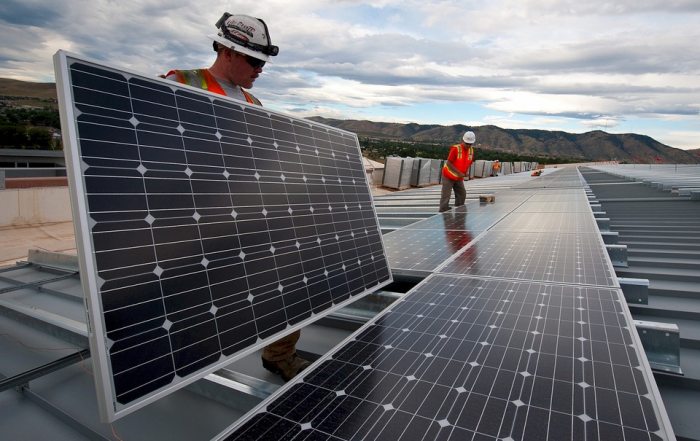
Image: Skeeze
The USA’s solar sector is in for a nervous wait after a decision from the International Trade Commission that some imported solar cells and panels pose a threat to the nation’s domestic manufacturing industry.
On Friday, the ITC announced it had determined the level of cells being imported into the United States from a number of countries to be a “substantial cause of serious injury” to local manufacturers.
The investigation was the result of Suniva, Inc. filing a petition under Section 201 of the 1974 Trade Act in April – the company also declared bankruptcy during that month. In May, SolarWorld Americas became a co-petitioner; soon after parent company SolarWorld AG announced it would file for insolvency. As a result of that process, SolarWorld Americas is reportedly in limbo.
Both companies have pointed to cheap imports as a major cause of their woes in the U.S. Others disagree, stating management and other issues were the culprits.
It’s also been argued that competitive imports have allowed more Americans to take control over their energy costs than otherwise would have occurred and has enabled the proliferation of commercial and utility-scale solar in the country. As a result, solar power has become a major employer in the USA.
After making the decision, the Commission now moves into the remedy phase. It may recommend to President Trump that he implements an increase in a duty, imposes a quota, a tariff-rate quota and/or trade adjustment assistance.
“In addition, the Commission may also recommend that the President initiate international negotiations to address the underlying cause of the increase in imports or that he implement any other action authorized under the law that is likely to facilitate positive adjustment to import competition,” states the ITC.
In June this year, the Solar Energy Industries Association (SEIA) warned that success of the petition could result in a third of solar power jobs in the USA being lost.
Abigail Ross Hopper, president and CEO of the SEIA, commented on the ITC’s decision.
“The ITC’s decision is disappointing for nearly 9,000 U.S. solar companies and the 260,000 Americans they employ. Foreign-owned companies that brought business failures on themselves are attempting to exploit American trade laws to gain a bailout for their bad investments.”
Ms. Hopper stated analysis indicated Suniva’s remedy proposal would double the price of solar power, destroy two-thirds of demand and erode billions of dollars in investment. It’s been reported Suniva wants to see a duty rate of 40 cents per watt on imported cells and a 78 cents per watt price floor on imported solar panels.
Just prior to the ITC’s decision, SEIA filed a letter with Commission, claiming the petitioners had not submitted a plan to function as viable solar cell and panel manufacturers if granted trade relief.
“… it supports SEIA’s position that the real reason these foreign-based companies filed the Section 201 petition is to get a federal bailout to pay back their creditors for bad investments,” states SEIA.
A day before the decision was announced, the Governors of Colorado, Massachusetts, Nevada and North Carolina expressed their opposition to the petition and proposed remedy, stating:
“The requested tariff could inflict a devastating blow on our states’ solar industries and lead to unprecedented job loss, at steep cost to our states’ economies.”
A public hearing relating to potential remedies will be held on October 3 and the Commission will submit its report to President Trump by November 13.

 RSS - Posts
RSS - Posts



Once again, American business interests use a bulldozer to solve problems in their home domain. Not new, will happen again.
Their ‘Dear leader’ sounds as bad as a certain nth. korean megalomaniac.
Fair trade will win but it may take longer. Unfortunately the only ones to suffer if local dollar relief is made mandatory will be future users of solar (P.V.) equipment.